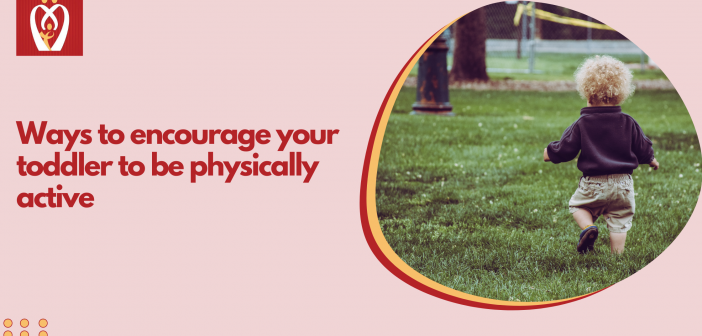It is true that barely one in four youngsters meets the 60-minute physical exercise requirement each day. Read more about Toddler care.
As a child’s age and academic level rise, so does their likelihood of engaging in any form of physical exercise. When it comes to toddler care, physical exercise should be a part of every family’s daily routine.
Toddler care: Physical exercises
To be physically active, one must engage in enough movement to cause heavy breathing, shortness of breath, increased body temperature, and perspiration. Children’s health and well-being depend on regular physical activity. Getting enough exercise is important for a variety of health benefits, including the development and maintenance of strong bones, muscles, and joints. As a result, the risk of developing diabetes, high blood pressure, and heart disease in old age may be reduced. Helps youngsters fall asleep fast and stay asleep for a good night’s rest.
In addition to its physical advantages, regular physical exercise has been shown to improve a child’s emotional well-being as well. It improves a child’s self-esteem, schoolwork, attention, and conduct by boosting their excitement and optimism. It also helps to alleviate symptoms of stress, worry, and sadness. As part of a team sport, it may help build collaboration and camaraderie.
When it comes to encouraging their children to be more physically active, parents may have a significant influence. Here are a few ideas:
- Your child’s GP should be consulted about any concerns you may have. Your kid’s GP can explain the benefits of regular physical exercise to your youngster. GPs are a great resource for figuring out what sports or hobbies are right for your kid.
- Make it a game. Assist your kid in finding a sport she likes. The more she appreciates it, the more likely she is to do it again and again and again. Participate with the whole family. All of you will have a lot of fun doing it.
- Make sure the activity you choose is suitable for your child’s age. This age group isn’t quite ready for weightlifting or 3-mile runs, but they’re perfectly capable of participating in activities such as swimming and playing sports like soccer or biking.
- When it comes to toddler care, preparation is key. Convenient times and locations for your kids to exercise should be a top priority for you.
- It offers protection from harm. A safe environment for your kid to practise or play in includes their equipment and the environment itself. You should ensure that your child’s attire is suitable for the activity at hand.
- Active toys should be made available. Balls, jump ropes, and other energetic toys are particularly important for young children.
- Be an inspiration to others. Physical exercise and sports participation are more common among children who observe their parents engaging in them.
- Play games with your kids. Encourage them to take up a new physical activity or sport. Alternatively, go for a stroll, hike, or bike ride and have a good time with your loved one.
- Set boundaries. Every day, set a timer for how much time you spend in front of a screen, including TV, movies, computers, and video games. Do some additional physical activity in your leisure time.
- Make time for physical activity in your schedule. A lack of time for physical activity is a common problem among school-age children who are overburdened with assignments, rehearsals, and other activities.
- Do not overdo it when it comes to physical activities. Taking part in physical activities should not injure anybody. It’s important for your youngster to slow down or find a less strenuous activity if it gets unpleasant. It’s crucial not to overdo it, just as in any other activity. Talk to your child’s GP if exercise is interfering with school or other activities.
According to research, people are significantly more likely to carry on the habits and values they learned as children into adulthood. Families that prioritise sports and physical activity will provide a solid basis for a healthy future for their children and themselves.
A nutritious diet and regular exercise are the building blocks for long and active life in toddler care. Healthy behaviours can be instilled in children from an early age, and this is one of the most essential things parents can do for their children. It’s never too late to get started with a new hobby. Ask your child’s GP about healthy living resources now.




